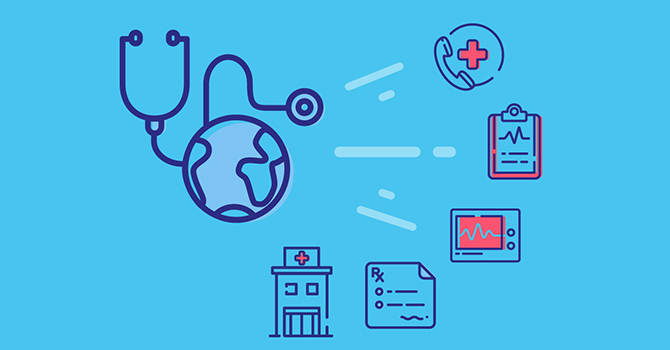Technology has become a cornerstone in transforming the way health services are managed, leading to significant improvements in patient care, operational efficiency, and overall service delivery. From electronic health records (EHRs) to telemedicine and advanced data analytics, technology is reshaping the way providers manage and deliver services. This transformation is making health services more accessible, efficient, and personalized. By integrating innovative technological solutions, systems can address existing challenges and anticipate future needs, ensuring that patients receive the highest standard of care in a rapidly evolving landscape.
Enhancing Patient Records and Data Management
One of the most significant impacts of technology in health service management is the digitization of patient records through electronic health records (EHRs). EHRs allow for the seamless storage, retrieval, and sharing of patient information among various providers. This digital approach not only reduces paperwork but also ensures that professionals have access to accurate and up-to-date patient data, leading to better-informed decision-making and improved patient outcomes. Additionally, EHRs facilitate the integration of various services, enabling providers to coordinate care more effectively and avoid duplicate tests or conflicting treatments, ultimately enhancing the quality of patient care.
Improving Patient Engagement and Communication
Technology has revolutionized patient engagement and communication by providing new channels for interaction between patients and providers. Telemedicine platforms, mobile health apps, and patient portals enable patients to easily schedule appointments, access their medical records, and communicate with their providers. This increased engagement empowers patients to take a more active role in their health management, leading to better adherence to treatment plans and improved health outcomes. Furthermore, these technological tools offer patients the convenience of accessing services from the comfort of their homes, reducing the need for travel and minimizing the disruption to their daily lives, especially for those with mobility issues or chronic conditions.
Streamlining Operations and Reducing Costs
Health care management is greatly improved by technology through the streamlining of operations and reduction of costs. Automation of administrative tasks and optimization of resource allocation are key benefits provided by tools such as handling software and automated billing systems. These technologies help organizations manage appointments, process payments, and handle insurance claims more efficiently, thereby reducing the administrative burden on staff and allowing them to focus more on patient care. Additionally, predictive analytics and resource software can help facilities anticipate demand, manage inventory, and allocate staff more effectively, leading to significant cost savings and improved operational efficiency.
Advancing Data Analytics and Decision Support
Advanced data analytics and decision support systems are transforming health care management by providing actionable insights for clinical and administrative decision-making. Predictive analytics can identify trends and patterns in patient data, helping providers anticipate and address potential health issues before they become critical. Decision support systems offer evidence-based recommendations for treatment options, improving the accuracy and effectiveness of care plans. Additionally, these technologies analyze large datasets to identify at-risk groups, track health outcomes, and develop targeted interventions that improve public health and reduce disparities.
Enhancing Security and Compliance
With the increasing digitization of health information, ensuring data security and regulatory compliance has become paramount. Technology plays a crucial role in protecting patient information and maintaining compliance with regulations such as HIPAA. Advanced encryption methods, secure access controls, and continuous monitoring systems help safeguard sensitive data from cyber threats and unauthorized access. Additionally, compliance software assists organizations in adhering to regulatory requirements, conducting audits, and implementing best practices in data utilization. By enhancing security and compliance, technology not only protects patient privacy but also builds trust between patients and providers.
Facilitating Interoperability and Integration
Interoperability and integration are key components of a modern health system, allowing different technologies and systems to work together seamlessly. Technological advancements enable the smooth exchange of information across different platforms and institutions. This integration improves care coordination, as providers can access a comprehensive view of a patient’s medical history, treatments, and outcomes, regardless of where the care was provided. Additionally, integrated systems support the continuum of care, ensuring that patients receive consistent and coordinated care as they move through different stages of treatment and recovery.
Conclusion
In conclusion, technology is playing a pivotal role in transforming population health management by enhancing patient records and data utilization, improving patient engagement and communication, streamlining operations, advancing data analytics and decision support, enhancing security and compliance, and facilitating interoperability and integration. As technology continues to evolve, its integration into population health management will be crucial for building a more efficient, effective, and patient-centered system. The ongoing innovation in health technology promises to address existing challenges and unlock new opportunities for improving patient care and overall health outcomes.
